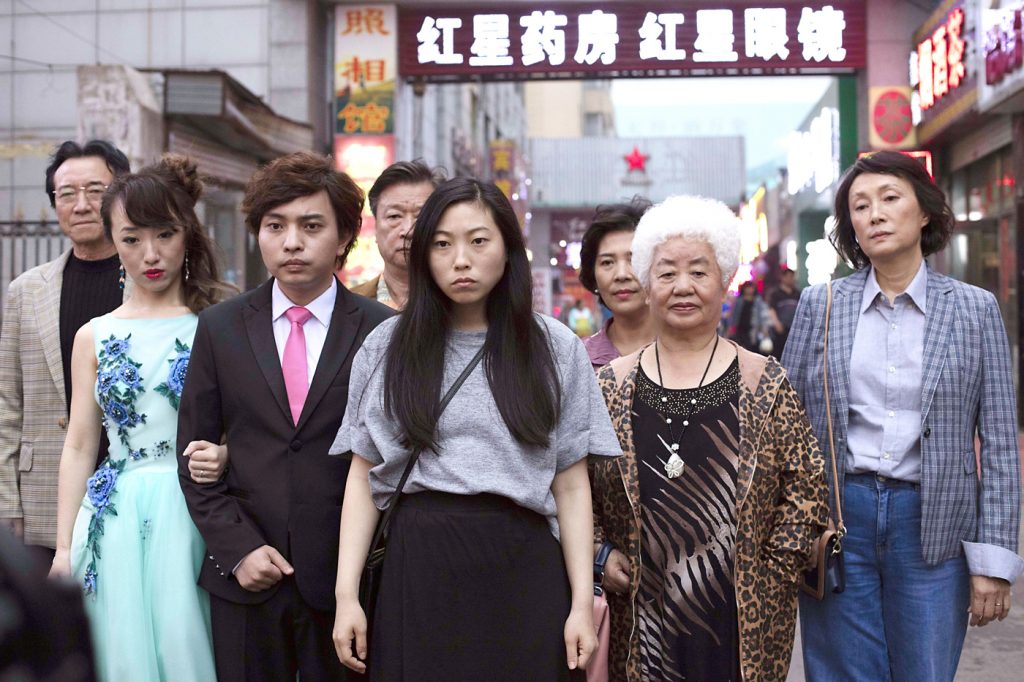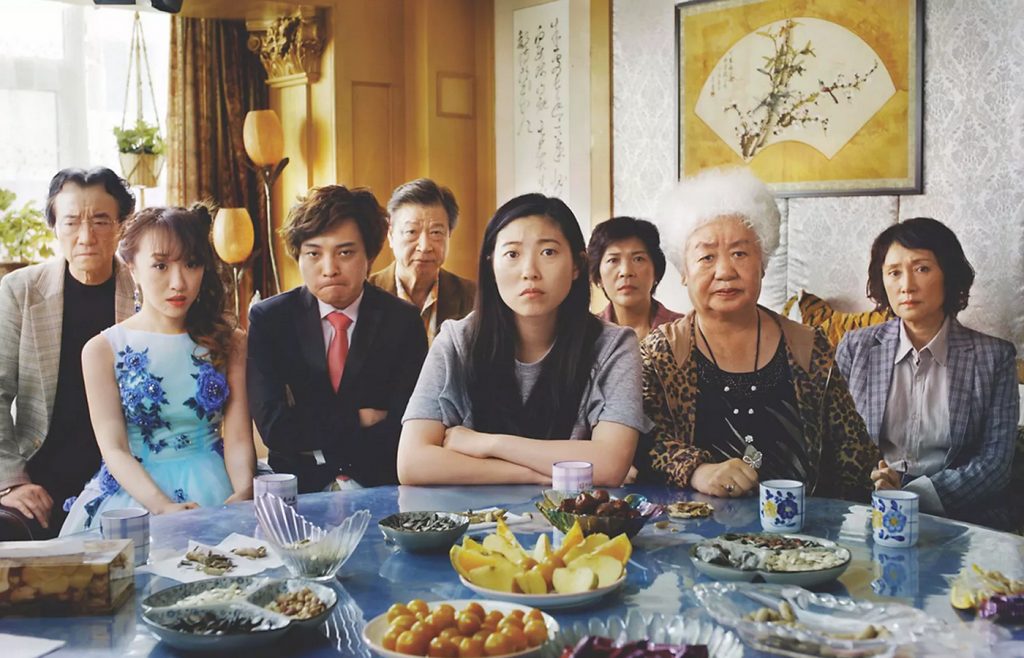
The Farewell opens at Filmscene in Iowa City on Friday, August 9.
The Farewell, the deservedly breakout hit from the Sundance Film Festival, is written and directed by Lulu Wang, a relatively new Chinese American filmmaker, who based the film on her own family’s experience.
Starring Awkwafina, whose breakthrough roles in 2018’s Ocean’s Eight and 2019’s Crazy Rich Asians have garnered much praise and attention, this poignant and universally relevant movie is about a family uniting in China to say farewell to a beloved matriarch.
The twist to the story is that by the family’s choice, the grandmother, called Nai Nai (Shuzhen Zhao), is completely unaware she has terminal cancer. The pretext for the gathering is the marriage of her grandson.
Granddaughter Billi (Awkwafina), who flies from NYC to Beijing for the gathering, is enormously conflicted by the situation, which is fraught with love and grief in equal measure. On a larger scale, this movie delves deeply into the emotional and cultural repercussions of families divided by immigration.
Matriarch Nai Nai is loving, spunky, and bossy. Despite having a nagging cough, she is thrilled that her whole family has come together for the first time in 10 years and is eager to orchestrate this homecoming. Her two middle-aged sons have flown in from the U.S. with their wives, along with her beloved granddaughter Billi. Her soon-to-be-married grandson, Hao Hao, and his fiancée, Aiko, have traveled from Japan to have their wedding in Beijing.

Nai Nai, her sister, and her sister’s family speak only Mandarin (the movie has subtitles). Aiko speaks only Japanese, and others are bilingual. Over several days, this robust, diverse extended family chatters together over huge communal meals, talking about the impending wedding (Nai Nai wants it big and traditional), the pluses and minuses of life in America, shared memories, and Billi, whose Mandarin is very rough and whose American sensibilities clash with the rest of the family—including her desire to tell Nai Nai the truth, much to the dismay of Billi’s parents (played by Chinese American actors Tzi Ma and Diana Lin).
This is a slice of life kind of movie, and the layers revealed as the story unspools are rich and compelling, a play of family dynamics and emotion: anger, frustration, guilt, envy, stoicism, heartbreak, loss, celebration, and most of all love—love across generations, languages, cultures, and oceans.
In all the talk about immigration these days, the focus is usually on what aspiring immigrants gain from leaving their homelands—as if life in the U.S. is the biggest lottery prize ever. Rarely is the focus extended to what is lost by immigrating, the family and culture left behind that are still cherished and missed, and how the ones left behind feel. The Farewell shows a complex and deeply moving story about immigration, but most of all it is simply about a family bound by love and shared roots.
Director Wang had to oversee a challenging, complicated filming process that took place in both China and the U.S., with Chinese and American actors and production crews. Although this film is a very personal story, Wang says it is not literal but expresses “emotional honesty.” This quality is what makes The Farewell so moving and special.
NOTE: Be sure to stay for the credits to catch a glimpse of the real Nai Nai!
